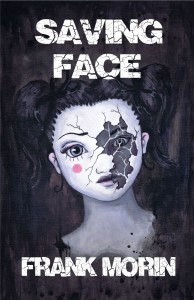This post is also featured at the Fictorians where we are focusing all month on marketing and promotion.
These days publishing a book isn’t the roadblock it used to be. Many of us are e-publishing even while often still trying to land a traditional publishing deal. It is so easy to get a book out there – almost too easy.
I’m seeing some pretty wildly differing stats on how many books were published in the past couple of years. Bowker, the company that issues official ISBNs, lists the numbers of books published with those ISBNs, but many authors who only e-publish don’t bother getting an ISBN, so those numbers are woefully short. I saw one statistic that claimed 3,000,000 books were published in 2011, and estimated 15,000,000 in 2012.
Even if those numbers aren’t 100% accurate, I think it’s safe to assume millions of books are flooding the e-book marketplace. It’s so easy to e-publish that there are no quality controls out there. The sad truth is that many of the millions of ebooks flooding the market are terrible. I know several kids in high school and even middle school who proudly proclaim they’re published authors with multiple titles to their name. They look at me funny when I tell them I’ve been writing for years and just released my first ebook and ask what took me so long!
The problem is – if your book is one of the awesome ones, it’s becoming increasingly difficult to get noticed and not lost in the flood. That’s why promotion and marketing is becoming more important than ever.
When e-publishing the most important marketing tool you have is your book. If you release a book before it’s really finished, before it’s well edited, without a striking cover, you’re tying an anchor around your own neck.
I’ve read more than one ebook that showed great promise. It was ALMOST great. But the author clearly rushed the process, lacked the discipline to do it right and polish it that last 5% that would have made it shine. And as a result, all that hard work was wasted because the final book was merely decent.
In today’s market, we can’t afford to have a decent book, an okay book. When e-publishing it’s vital to take the time to make sure our books are really ready to go. Here are a few things to keep in mind to help get your book there.
Complete more than one pass.
A good author with a solid plan can write a pretty good book in a single pass, but that doesn’t mean it’s ready for immediate release. It needs to be polished, fine-tuned, with each scene carefully reviewed to maximize its potential. David Farland is famous for making up to 10 editing passes for his novels, each one focused on optimizing different aspects of the story.
Take the time to really finish your book.
Get it professionally edited.
Many e-authors hate this step and manage to convince themselves that they don’t need it. Why bother actually investing in our work? Better to just release it and watch the money roll in, right?
Wrong. I can’t stress this one enough. No matter how good you think you are as a writer, no matter how much blood, sweat and tears you’ve already invested in the work, you’re not done. Readers can tell when a book is not professionally edited and they’ll feel cheated and never buy another of your books.
It was a humbling experience for me to see all the marks on a recent manuscript when the editor I hired returned it. I don’t think there was a single page without some kind of mark. I learned a lot, got insights into blind spots I never knew I had, and the resulting manuscript really shines in ways it never could have before. Totally worth the money.
Like anything else, know your editor. Some who claim to be editors aren’t worth your time. You may have to contract with a few editors on different manuscripts to find one you really work well with.
One editor I highly recommend without reservation is our own Joshua Essoe. Check out his website here.
Again, good cover art is an investment, although it doesn’t have to be a ton of money. There are great resources out there for covers at reasonable prices. Michelle Wilber, the woman who painted the cover for my ebook Saving Face is a talented artist who is a personal friend. Many artists are willing to help with covers for ridiculously small fees as a way to help them also break into the market and be noticed. It’s a win-win situation.
Unfortunately many authors just download the first clipart they can find on free sites and slap on a title. Worse, some just download any image they like, even if they don’t have rights to it. Don’t fall into that trap. A good cover needs careful thought to present the right tone and brand, including the right font. This is huge. A good cover draws readers in, while a bad cover kills the deal before the power of your writing has any chance.
Format the book carefully.
Don’t just assume you can take your Word file and convert it into an ebook without more work. Bad formatting marks you an amateur and drives readers away, and Word is notorious for inserting tons of special characters invisible while in that program but glaringly obvious when converted to ebook format.
I learned a ton about that process while prepping Saving Face for release. I found some excellent resources to help. If you are willing to do some simple technical work on your novel, it is definitely possible to produce quality output.
If not, there are great resources out there that will prep your ebook for you for a reasonable fee. I haven’t used them myself, so I can’t recommend one over another, but you can easily get recommendations from other authors. With a little research you can find the one that best fits your needs and budget.
I used two resources primarily in my formatting project:
First was Cheri Lasota’s ebook Design and Upload Your EPUB. The Steps To Your Success. This excellent resource is available for only $0.99 and is well worth the cost. She discusses her approach for formatting an ebook, and walks an author through the steps of prepping a book and uploading it to both Amazon and B&N.
I also followed an excellent series of blog posts by Guido Henkel where he discusses in great detail his process. His is slightly more technical, and if you have some basic HTML ability, is excellent.
There are many other great resources out there, and it doesn’t really matter which one you choose, so long as you make sure you follow one of them and carefully prep your ebook.
Even after utilizing both of these sources and carefully reviewing the final product, I still found a couple of minor errors after releasing Saving Face. Thankfully both Amazon and B&N allow for updating a corrected manuscript. Just don’t use that as a crutch to not doing the work up-front because anyone who’s already purchased your book is stuck with the errors.
If you nail all four of these areas, most likely you’ll have a rock solid ebook ready for release. Coupled with brilliant writing, you’ve covered all the bases to become a player in the game.
Now, just need to figure out how to reach the 10 million readers I know are dying to buy my book . . .

